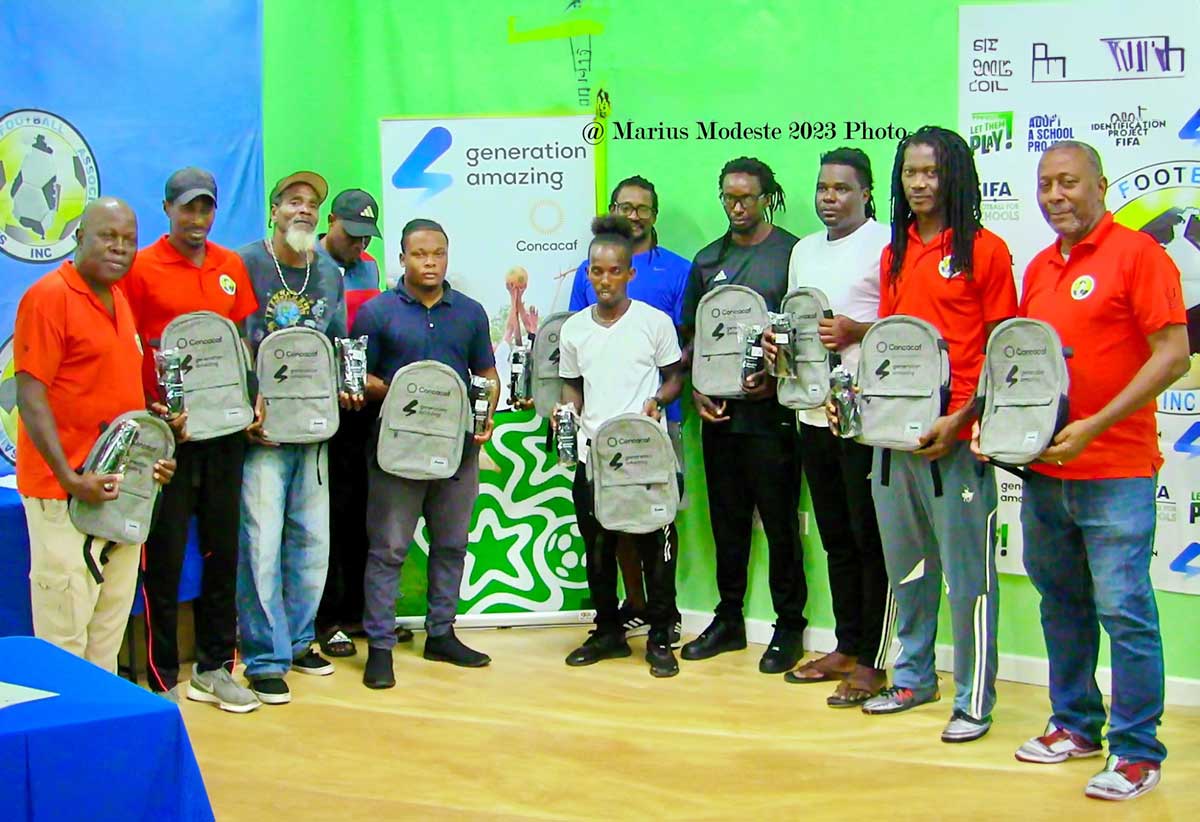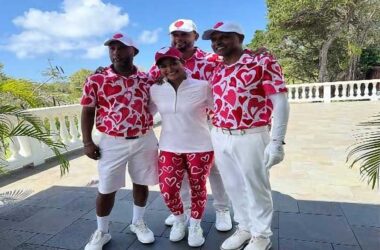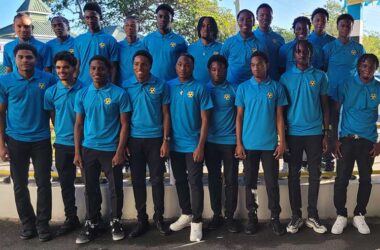
An innovative and instructive coaching programme is underway to get young participants involved in soccer and utilise the sport as an avenue to chart a progressive path.
At a recent media briefing , the Saint Lucia Football Association [SLFA] Inc. made a presentation to participants involved in the CONCACAF Generation Amazing Coaching Programme.
SLFA President Lyndon Cooper provided an update on the coaching programme.
He said the association felt it was prudent to call on the coaches and coach educators who were involved in the programme to assess their accomplishments and provide them with the requisite resources to accomplish this feat.
“What we have managed to ensure is that CONCACAF continues to manage this programme, as we continue to build the SLFA brand and continue to develop the game from the base,” Cooper stated.
The recent presentation was intended to provide required equipment, “solely for the use of the participants”, all in an effort “to ensure that …we understand the importance of the programme and especially when things are given to us to pass it on.”
He said the SLFA’s primary goal is to ensure “that every child within the programme is going to be equipped before the year end and that’s mostly to ensure that they continue to use football as their first choice of sport.”
The SLFA president explained that why the unit aims to continue developing the programme in 2024 , adding that “we have to be mindful of what we have to achieve …taking football (locally) to another level”.
He said, while the SLFA is pleased to be able to sustain the programme, it is imperative for the coaches “to do their utmost to ensure that we achieve the overall objectives, because if we do not it is going to continue to make that journey that much more difficult.”
SLFA coach educator and Programme Facilitator John Sealy further explained that the programme is intended as a “football for development” project within the communities and “using football to develop communities and to develop individuals.”
He noted that the importance of the programme cannot be “over emphasised”, considering the level of criminal activity and social disorder permeating throughout the country in these times.
“The way gangs and gang-violence has infiltrated our schools …we can take football, and use it in a positive way to get rid of some of those social issues and social ills that the country is currently facing,” declared Sealy.
“It is not merely a football programme, but one where you use football to deal with certain issues,” he added. “And so, I need to applaud the coaches who went through the training, and who saw the need to undertake a programme like that.”
Sealy assured the coaches that now into its second year, “the programme is expanding. Initially, CONCACAF started it as a pilot programme in ten countries or ten-member associations.”
He said, the SLFA were fortunate to be selected “and the programme has now expanded to 21 territories…CONCACAF is supplying all the equipment and some of the stuff to be received will be solely for the children.”
While explaining the rudiments of the programme, the SLFA official urged the participants to update information “on a site called Club Force.” And according to Sealy, though CONCACAF has placed this site on the back burner, a new site will be provided and information can be downloaded from that link.
Subsequently, he said, with this injection of funds into this development, CONCACAF will be conducting a survey and assessment of the programme and “we need to show accountability”.
Added Sealy: “If we want to continue the programme, we must show a commitment to it. It is a programme that can save lives and that can help the country.
“We are hoping that all of you as coaches will take it on seriously. CONCACAF is pumping resources into it, and the SLFA is pumping resources into it …and as far as we know, only the Saint Lucian coaches are getting a stipend for doing it.”
Presently, there are 20 primary schools involved in the programme and each primary school has 25 students participating.
He asserted that each of the 500 students will receive water bottles, gear bags and other kits to utilize when out training or attending school and urged the coaches “to ensure that they get it and they use it.”




![MSS takes on VPSS in an action thriller [Photo credit: MYDS]](https://thevoiceslu.com/wp-content/uploads/2026/02/MSS-takes-on-VPSS-in-an-action-thriller-feat-380x250.jpg)
![Tapon House recorded its fourth consecutive title victory [Photo credit: MYDS]](https://thevoiceslu.com/wp-content/uploads/2026/02/Tapon-House-recorded-its-fourth-consecutive-title-victory-380x250.jpg)







